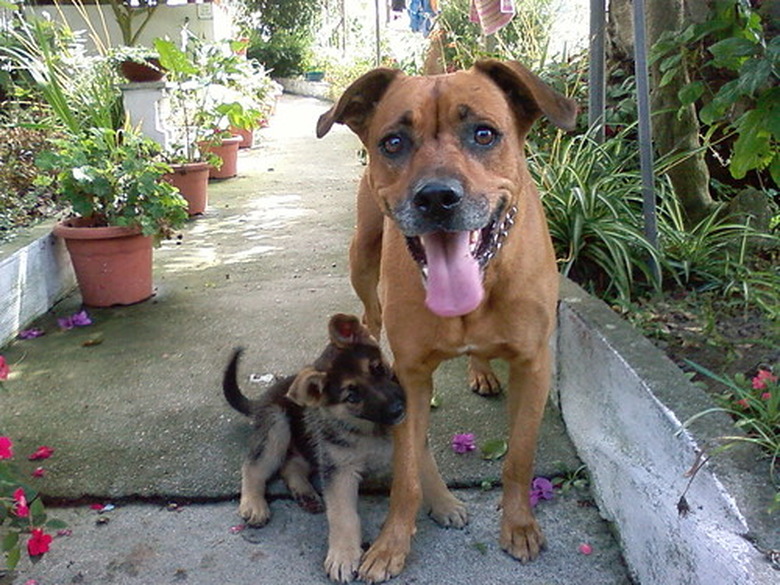Are Kumquat Trees Harmful To Dogs?
Kumquat trees, also known as Citrus japonica or Fortunella japonica, are evergreen shrubs that produce tart, small citrus fruits. While neither the fruit nor tree is toxic to dogs, if your dog eats large amounts of the fruit, it could cause stomach upset.
Although most citrus plants in the Rutaceae family are actually toxic to dogs, kumquat trees are one of the few exceptions. Dogs typically don't like citrus fruits or smells, but some dogs may be curious and may take a taste of these tangy citrus fruits or other parts of the tree.
Kumquat animal toxicity
Kumquat animal toxicity
Unlike other trees in the Rutaceae family, like lemon or grapefruit trees, kumquat trees are not considered toxic to dogs or cats. This means that if your dog eats a kumquat or any part of the tree, there won't be large amounts of toxins in it that can hurt her.
However, kumquats are citrus fruits and do contain small amounts of citrus oils that could irritate your dog's stomach, liver, or skin, so it's best to keep her consumption to a minimum. Because the peels usually contain a higher concentration of these oils, take off these edible peels before feeding any kumquats to your dog.
Note that most dogs don't like the taste of citrus fruits, and after eating a bit of the kumquat, your pup will likely not want any more of the fruit.
Kumquat tree dog dangers
Kumquat tree dog dangers
While the fruit of the kumquat tree isn't poisonous to dogs, some pups may want to gnaw on the bark and leaves of the tree. The tree itself doesn't contain any toxins for dogs, but the wood itself could be dangerous to your dog.
Dogs who eat things like sticks and tree bark could suffer from injuries to their mouth, their teeth, their esophagus, and their intestines. That's because wood is sharp and tends to splinter, so it's best not to allow your dog to chew on kumquat trees or any trees.
A condition known as pica could lead to your dog trying to eat nonfood items, like tree bark or branches. If you suspect that your dog gnawed on your kumquat's branches or bark, bring him to the vet for an exam to determine if any pieces are causing a blockage of his intestines.
What if my dog ate a kumquat?
What if my dog ate a kumquat?
If your dog ate a kumquat, don't fear because these fruits are not considered toxic to dogs. At most, your dog might experience a bit of stomach upset and diarrhea after eating a kumquat due to the high magnesium content. For dogs who ingest a large quantity of kumquats, this stomach upset might be serious, and she could develop a skin reaction.
Check your dog's stool after she eats any kumquats for signs of diarrhea or vomiting. It's best to visit your veterinarian if you notice any serious stomach upset because the doctor may prescribe medication, fluids, and other supportive care to help settle your dog's stomach.
Are citrus fruits safe for dogs?
Are citrus fruits safe for dogs?
Generally, citrus fruits are not safe for dogs. In fact, the American Society for the Prevention of Cruelty to Animals categorizes lemon trees, grapefruit trees, bergamot orange trees, calamondin orange trees, orange trees, and lime trees as toxic to both dogs and cats.
The toxic ingredient in most citrus fruits is their essential oil, like limonene, linalool, and psoralens, all of which are contained in the tree, the leaves, and the rinds of the fruit. Aside from the peels, the fruits are generally considered safe for dogs. Effects of citrus poisoning could include vomiting, diarrhea, depression, drooling, tremors, weakness, and dermatitis.
All of these citrus plants are in the same family as the kumquat, but kumquat trees are not classified as toxic to dogs. However, as a precaution, it's likely best not to let your dog chow down on your kumquat trees or large amounts of their fruit.
References
- Dogster: What Exotic Fruits Can Dogs Eat?
- Our Fit Pets: My Dog Ate a Kumquat Will He Get Sick?
- Citrus.com: Are Lime Trees Poisonous to Dogs?
- American Society for the Prevention of Cruelty to Animals: Lemon
- Traveler's Blog: Readers Ask: Is Kumquat a Fruit or Vegetable?
- Love Your Dog: How To Stop Your Dog From Eating Wood, Sticks & Debris
- The World Flora Online: Citrus japonica Thunb.
- American Society for the Prevention of Cruelty to Animals: Toxic and Non-Toxic Plant List – Dogs
